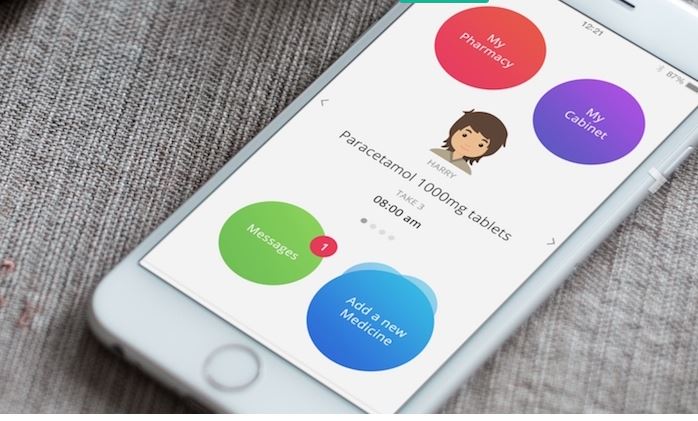As consumers, we are becoming ever-more curious about our health and fitness. Many of us measure our food intake and track our activity on a daily basis with various apps and gadgets: but as a nation, we don’t have the same conscientious attitude towards medicines.
Despite the fact that over 50% of UK residents take regular prescription medicines, we don’t think much beyond the instructions given on the box, despite our reliance on medicines to regulate conditions or improve our health. In fact, only 16% of patients who are given a new medicine take it as prescribed, experience no problems and receive as much information as they need.
Almost a third of patients stop taking their medicines correctly after only 10 days for a variety of reasons. Poor medicine management accounts for over £4 billion of wastage for NHS England and 3-4% of hospital admissions every year. So that’s why, with the support of Cambridge Enterprise, we founded Healthera. Our mission is to improve this status quo by enabling patients to stay in control of their health. We aim to reduce the vulnerability, stress and confusion that comes with taking medication.
Almost a third of patients stop taking their medicines correctly after only 10 days for a variety of reasons… so that’s why, with the support of Cambridge Enterprise, we founded Healthera.
Martin Hao, Managing Director of Healthera
The Healthera app is a smart medicine diary for patients that analyses their medicine-taking pattern, records their concerns and helps them gain their pharmacist or doctor’s attention when misuse or irregular medicine-taking occurs. The Healthera system interprets the medicine’s name and instruction found on prescription dispense labels into a medicine schedule, then turns it into a QR code that is printed on the label. Patients can then use the Healthera App to scan the label, adding the medicine schedule to their phone’s calendar. As Healthera has collaborated with pharmaceutical IT providers and pharmacies nation-wide to develop their system, not long from now patients will find the smart prescription dispense label on their pill bottles and boxes. Healthcare professionals including pharmacists and GPs also benefit. Pharmacists can now directly interact with patients and resolve their non-urgent medicine concerns, helping to transform community pharmacies into digital hubs of patient-centred healthcare by encouraging pharmacists to take on clinical roles and relieving unnecessary workload from GPs. Pharmacists are then able to attend to more patients in a shorter time. GPs will be able to access their patients’ medicine schedule and medical notes, thereby making data-oriented medical decisions quicker during appointments.
During the last 10 months of product development, Healthera has launched two product trials with local pharmacies and organised more than 40 patient engagement activities. When it came to creating the Healthera App, we started from scratch, wrote the desired functions with patients and healthcare professionals, sketched the designs with them and fine-tuned every single user interaction throughout. As a result, the Healthera app is essentially designed by patients, for patients.
The Healthera method has introduced a new engagement model of healthcare professionals to the patient care pathway. The model was awarded development funding from SBRI Healthcare, an NHS England initiative to develop innovative products that address unmet health needs. The technology was recognised for its potential to significantly impact the increasing pressures being put on urgent and emergency care services.











